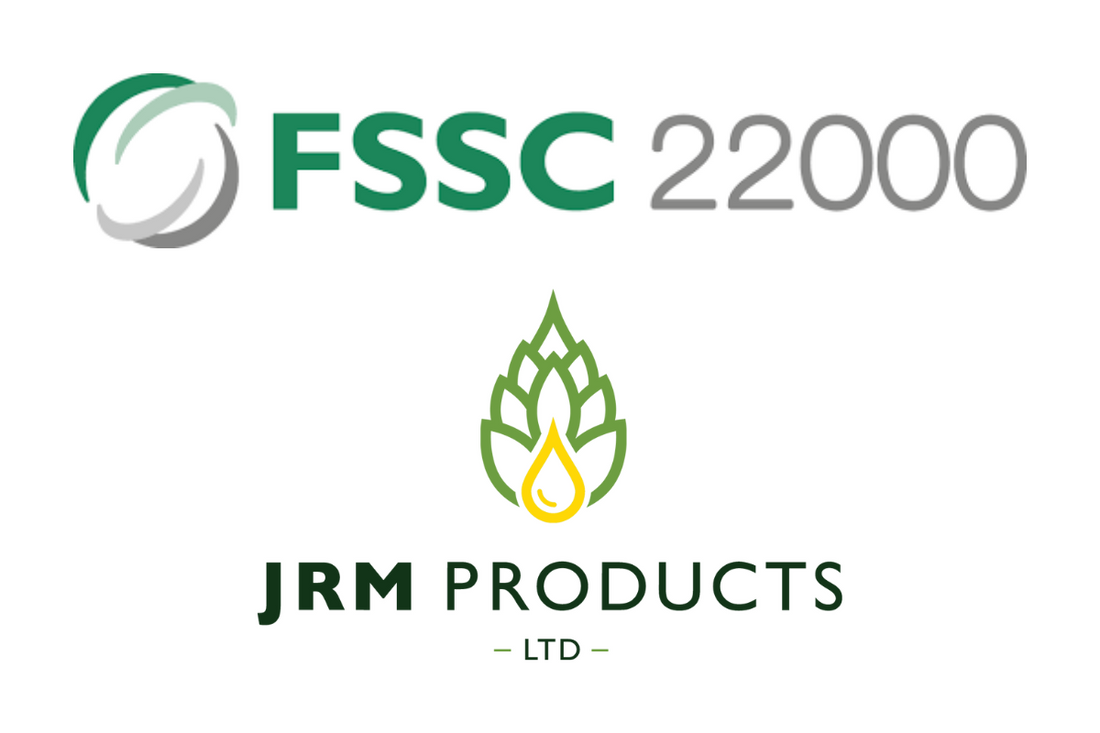
JRM & FSSC 22000: Leading the Way in Food Safety and Brewing Excellence
Share
Food safety is a fundamental part of producing high-quality brewing ingredients. At JRM Products Ltd, it is not just a compliance requirement but a core principle of how the business operates. Since 2015, JRM has proudly held FSSC 22000 certification, making us one of the first in the hop processing sector to achieve this internationally recognised food safety standard.
What is FSSC 22000?
FSSC 22000 is a globally recognised certification scheme for food safety management. It is built upon three key components:
- ISO 22000 & ISO/TS 22002-1 – These form the foundation of a structured food safety management system.
- FSSC 22000 – This includes additional technical specifications and industry-specific requirements that enhance safety standards even further.
This certification is far-reaching, covering every stage of production, from raw materials to the final product. JRM undergoes an annual audit, which every third year is unannounced, ensuring continuous adherence to stringent food safety protocols.
Ensuring Complete Traceability
One of the key requirements of FSSC 22000 is full traceability. Every batch of hop extract that leaves JRM can be traced back through the supply chain to the exact farm where the hops were grown. This level of transparency is critical for both quality assurance and food safety, giving brewers and beer drinkers confidence in the ingredients used.
Comprehensive Safety and Risk Management
The certification also requires businesses to demonstrate strict controls across multiple areas, including:
- Hygiene and Plant Cleanliness – Regular inspections ensure that JRM's production facility operates at the highest standard of cleanliness.
- Hazard Analysis and Critical Control Points (HACCP) – JRM maps out the entire production process, identifying potential risks and implementing control measures at every critical point.
A key aspect of HACCP involves managing four primary types of contamination risks:
- Chemical Contamination – Tracked through ongoing sample analysis to detect and prevent unwanted substances.
- Microbiological Contamination – JRM benefits from the natural antibacterial properties of its hop extracts but still conducts rigorous testing to ensure compliance.
- Physical Contamination – Preventative measures are in place to ensure foreign materials do not enter the production process.
- Allergenic Contamination – Strict controls are followed to prevent cross-contamination with allergens.
JRM’s certification also requires extensive documentation, with policies and procedures that must be adhered to at all times. Any non-conformities identified during audits (were they to be found!) must be promptly addressed, with preventative measures put in place to ensure they do not reoccur.
More Than Just Compliance – A Commitment to Excellence
While FSSC 22000 is designed to ensure the safety of food products, JRM views it as much more than a regulatory requirement. The structured approach it demands allows the business to continuously refine its processes, ensuring that efficiency, quality, and safety remain at the highest possible levels.
By maintaining this certification, JRM is not only meeting global food safety standards but also reinforcing its commitment to providing the world’s leading breweries with premium-quality hop extracts. For brewers, this means peace of mind—knowing that the ingredients they use have been produced with the highest standards of safety, traceability, and care.
FSSC 22000 is an essential part of JRM’s operations, ensuring that every product meets the demands of modern brewing while maintaining the heritage of quality and innovation that has defined the company since its founding.
